There is “no credible path” for NI to reach have net zero carbon emissions by 2050, and asking people to do things that they can’t do is “morally wrong” was the blunt message delivered to MLAs on the Stormont agriculture committee last Thursday.
Back giving evidence for the second time this year was Lord Deben, the chair of the UK Climate Change Committee (CCC), the expert body advising government on emission reduction targets.
While he did not want to get drawn into arguments around the private member’s bill taken forward by Green party MLA Clare Bailey, which would require NI to reach net zero by 2045, the CCC chair was clear that it would have major implications for the local livestock sector.
Analysis by the CCC has suggested that even to meet this 82% target, nearly half of NI farmland will need to be taken out of production
Instead the CCC has advised that NI should cut emissions by 82% by 2050, as our contribution to an overall UK net zero target by that date.
“Eighty-two per cent is extremely hard, particularly for the farming community – it is very important they buy into this,” said Lord Deben.
Analysis by the CCC has suggested that even to meet this 82% target, nearly half of NI farmland will need to be taken out of production. However, a target for NI to be net zero by 2050 will require livestock numbers to be cut by over half, so it follows that a net zero target by 2045 means even more significant reductions to livestock numbers.
Yet those supporting the private member’s bill (all the main political parties outside of the DUP) are not yet backing down.
It was put to Lord Deben by Sinn Féin chair of the Agriculture committee, Declan McAleer that NI would end up as a food producing region of Britain, with a worse environment – “effectively a carbon dump”.
Would the CCC see any potential risks to private investment in NI if we don’t achieve net zero?
Rejecting that, the CCC chair reminded McAleer that net zero for NI “is not possible”.
However, the coalition supporting the private member’s bill were not finished.
“Would the CCC see any potential risks to private investment in NI if we don’t achieve net zero?” asked Clare Bailey.
“There is no worry about that as long as NI is keeping in line with 82%, and the UK commitment. That is exactly what you need to do,” responded Lord Deben.
Toughest measures
He added that the UK government has already adopted the toughest emission reduction measures of any country in the world.
“There are a lot of people around the world who are promising things for which they have no plan, and probably no intention of achieving. You are proposing something which you intend to achieve,” he said.
Danger
Before he finished, the CCC chair reminded MLAs of the danger that we just end up exporting our food production to other countries where it is actually produced with a higher carbon footprint than in the UK.
He also pointed out that ruminants are a key part of a mixed farming model, and necessary if we are to build fertility in our soils.
“Veganism is not the answer and vegans should not use climate change as an excuse to push their entirely different programme,” he added.
No magic answer to Ag emissions
Of the greenhouse gas emissions currently attributed to local agriculture, around two thirds are down to methane produced from ruminant animals, so the obvious outworking of a target to be net zero is that livestock numbers are cut.
While there could be scientific solutions in the future, such as vaccines or feed additives, many are still a way off from practical reality.
“There is no magic answer to reducing those [methane] emissions in the short term, which is why the CCC gave us the advice they did,” DAERA senior official Colin Breen told the Stormont Agriculture committee last Thursday.
Breen, who is the lead official taking forward a separate DAERA climate change bill which will require NI to reduce emissions by at least 82% by 2050, has become a regular attender at the committee in recent weeks. His advice has been pointed and concise.
“We still advise strongly that at least 82% is the right target to go for, and the one that is most likely to be a balanced pathway and a just transition,” he said.
NI is much further ahead on emissions reductions than the Republic of Ireland
He repeated his evidence from the previous week that to achieve net zero, NI would probably have to spend £900m per year either buying in carbon credits, or building large scale infrastructure to remove greenhouse gases from the air.
However, it was put to Breen by committee chair Declan McAleer that the issue should be dealt with on an all-island basis, and there could be implications if part of the island has reached carbon neutrality when the other part hasn’t.
“NI is much further ahead on emissions reductions than the Republic of Ireland (ROI),” responded Breen.
“If it comes to the stage where ROI are making reductions they need to get to net zero by 2050, I think we will have no problem doing the same,” he added.
Read more
Cut NI farmland in half, say scientists
Climate expert urges lower methane target
DAERA official pulls NI climate bill apart
There is “no credible path” for NI to reach have net zero carbon emissions by 2050, and asking people to do things that they can’t do is “morally wrong” was the blunt message delivered to MLAs on the Stormont agriculture committee last Thursday.
Back giving evidence for the second time this year was Lord Deben, the chair of the UK Climate Change Committee (CCC), the expert body advising government on emission reduction targets.
While he did not want to get drawn into arguments around the private member’s bill taken forward by Green party MLA Clare Bailey, which would require NI to reach net zero by 2045, the CCC chair was clear that it would have major implications for the local livestock sector.
Analysis by the CCC has suggested that even to meet this 82% target, nearly half of NI farmland will need to be taken out of production
Instead the CCC has advised that NI should cut emissions by 82% by 2050, as our contribution to an overall UK net zero target by that date.
“Eighty-two per cent is extremely hard, particularly for the farming community – it is very important they buy into this,” said Lord Deben.
Analysis by the CCC has suggested that even to meet this 82% target, nearly half of NI farmland will need to be taken out of production. However, a target for NI to be net zero by 2050 will require livestock numbers to be cut by over half, so it follows that a net zero target by 2045 means even more significant reductions to livestock numbers.
Yet those supporting the private member’s bill (all the main political parties outside of the DUP) are not yet backing down.
It was put to Lord Deben by Sinn Féin chair of the Agriculture committee, Declan McAleer that NI would end up as a food producing region of Britain, with a worse environment – “effectively a carbon dump”.
Would the CCC see any potential risks to private investment in NI if we don’t achieve net zero?
Rejecting that, the CCC chair reminded McAleer that net zero for NI “is not possible”.
However, the coalition supporting the private member’s bill were not finished.
“Would the CCC see any potential risks to private investment in NI if we don’t achieve net zero?” asked Clare Bailey.
“There is no worry about that as long as NI is keeping in line with 82%, and the UK commitment. That is exactly what you need to do,” responded Lord Deben.
Toughest measures
He added that the UK government has already adopted the toughest emission reduction measures of any country in the world.
“There are a lot of people around the world who are promising things for which they have no plan, and probably no intention of achieving. You are proposing something which you intend to achieve,” he said.
Danger
Before he finished, the CCC chair reminded MLAs of the danger that we just end up exporting our food production to other countries where it is actually produced with a higher carbon footprint than in the UK.
He also pointed out that ruminants are a key part of a mixed farming model, and necessary if we are to build fertility in our soils.
“Veganism is not the answer and vegans should not use climate change as an excuse to push their entirely different programme,” he added.
No magic answer to Ag emissions
Of the greenhouse gas emissions currently attributed to local agriculture, around two thirds are down to methane produced from ruminant animals, so the obvious outworking of a target to be net zero is that livestock numbers are cut.
While there could be scientific solutions in the future, such as vaccines or feed additives, many are still a way off from practical reality.
“There is no magic answer to reducing those [methane] emissions in the short term, which is why the CCC gave us the advice they did,” DAERA senior official Colin Breen told the Stormont Agriculture committee last Thursday.
Breen, who is the lead official taking forward a separate DAERA climate change bill which will require NI to reduce emissions by at least 82% by 2050, has become a regular attender at the committee in recent weeks. His advice has been pointed and concise.
“We still advise strongly that at least 82% is the right target to go for, and the one that is most likely to be a balanced pathway and a just transition,” he said.
NI is much further ahead on emissions reductions than the Republic of Ireland
He repeated his evidence from the previous week that to achieve net zero, NI would probably have to spend £900m per year either buying in carbon credits, or building large scale infrastructure to remove greenhouse gases from the air.
However, it was put to Breen by committee chair Declan McAleer that the issue should be dealt with on an all-island basis, and there could be implications if part of the island has reached carbon neutrality when the other part hasn’t.
“NI is much further ahead on emissions reductions than the Republic of Ireland (ROI),” responded Breen.
“If it comes to the stage where ROI are making reductions they need to get to net zero by 2050, I think we will have no problem doing the same,” he added.
Read more
Cut NI farmland in half, say scientists
Climate expert urges lower methane target
DAERA official pulls NI climate bill apart




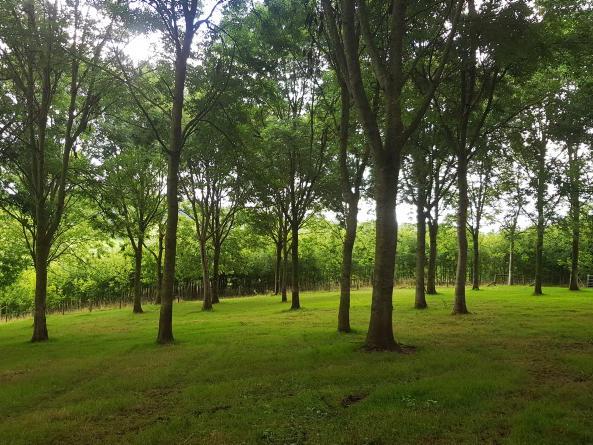
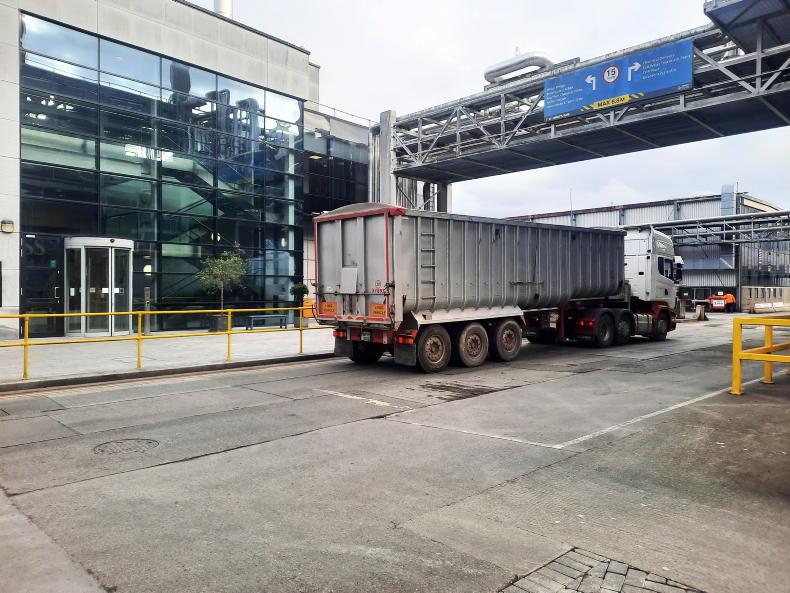
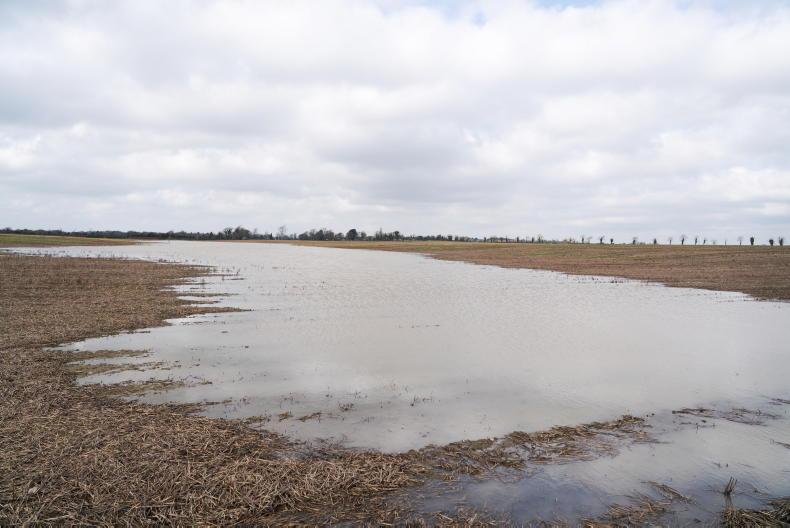
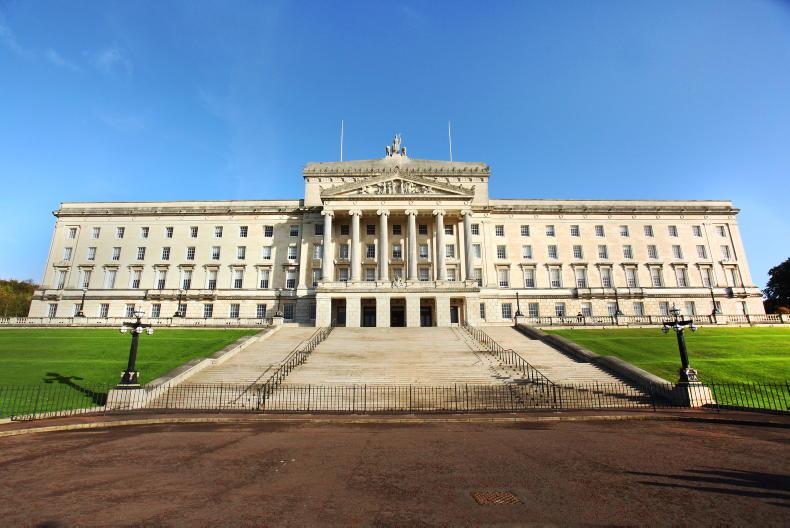
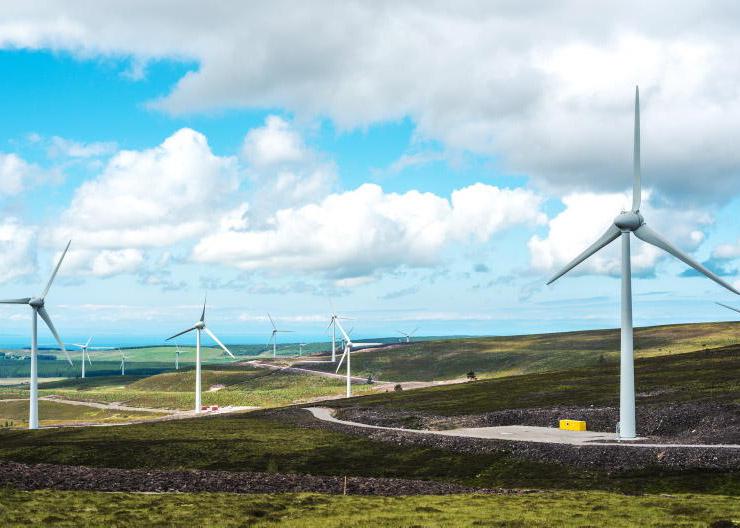
SHARING OPTIONS